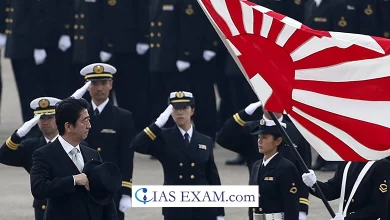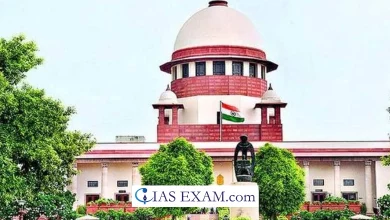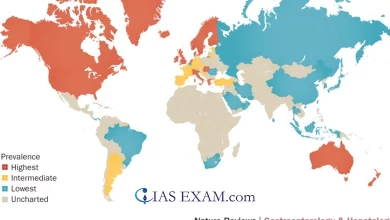Daily Current Affairs for UPSC
PIL Filed on Electoral Bond
[GS Paper 2 – Govt. Policies and Interventions]
The Supreme Court agreed to list for hearing a PIL, challenging the electoral bond scheme for political parties.
The PIL was filed by the NGO Association for Democratic Reforms (ADR).
Key Developments
- A bench was formed comprising Chief Justice N V Ramana and Justices Krishna Murari and Hima Kohli.
- It has been reported that a Calcutta-based company paid Rs. 40 Cr through electoral bonds to ensure that there was no excise raid on it.
What are Electoral Bonds?
- It was introduced in the Financial Bill 2017. These are securities that are used to donate money to political parties.
- As bearer bonds, the issuer (bank) is the custodian, and the holder (political party) is presumed to be its owner.
- The State Bank of India is the only authorized bank to sell them in the multiple of Rs. 1000, Rs. 10,000, Rs.1 lakh, Rs. 10 lakh and Rs. 1 crore.
- The bonds are available for purchase by any person (who is a citizen of India or incorporated or established in India) for a period of ten days each in the months of January, April, July and October as may be specified by the Central Government.
- The donor is permitted to buy bonds through cheque, and digital payment. There is no limit on the purchase of bonds.
- If a bond is not converted to cash within 15 days then it will be deposited by the SBI into the PM relief fund. Eligible political parties can only receive electoral bonds
- Eligibility criteria:
- Political parties registered under Section 29A of the Representation of the People Act, 1951.
- A political party that secured not less than 1 % of votes in the latest general election to the Lok Sabha or the Legislative Assembly of the state.
Issues with Electoral Bonds:
- Neither the donor (who could be an individual or a corporate) nor the political party is obligated to reveal whom the donation comes from.
- Because the bonds are purchased through the State Bank of India (SBI), the government is always in a position to know who the donor is. This asymmetry of information threatens to color the process in favor of whichever political party is ruling at the time.
- Elimination of a cap of 7.5% on corporate donations, elimination of requirement to reveal political contributions in profit and loss statements and also the elimination of the provision that a corporation must be three years in existence, undercuts the intent of the scheme.





.png)



